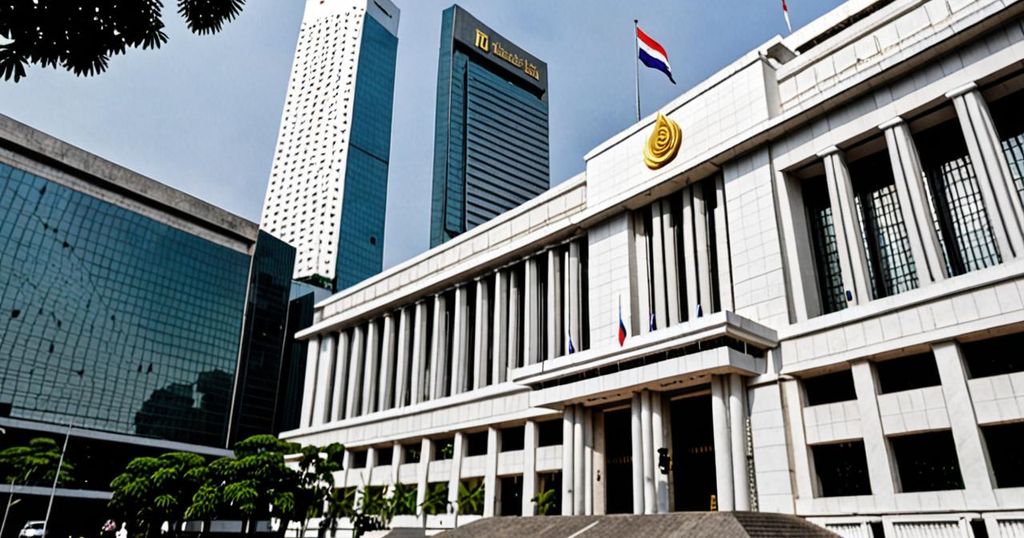The governor of Thailand’s central bank, Sethaput Suthiwartnarueput, is facing opposition from politicians advocating for lower interest rates to stimulate the nation’s economy. The conflict between the Bank of Thailand and the government is heavily influenced by politics, creating a source of stress for the governor. Despite this, Sethaput remains committed to fulfilling his duties without personal biases.
The Thai government, led by Prime Minister Srettha Thavisin, is under pressure to revive the stagnating economy, marked by slow growth and high levels of household debt. The administration aims to achieve 3% growth this year and 5% during the prime minister’s four-year term, prioritizing increased foreign tourism and government spending. In a bid to spur economic growth, the government is urging the Bank of Thailand to lower interest rates from the current decade-high of 2.5%.
Conflicting viewpoints on addressing Thailand’s economic challenges have escalated tensions between the central bank and the government. The government has criticized the Bank of Thailand for implementing rate hikes between August 2022 and September 2023, which it believes adversely impacted the economy. However, the central bank has defended its policy stance, emphasizing that the economy is already displaying signs of improvement.
As the conflict persists, the government is exploring measures to exert more control over the central bank, including nominating a government official as the bank’s chairman and influencing the selection of Sethaput’s successor following the end of his term next year.
The issue of central bank independence is not unique to Thailand and has also surfaced in other countries, such as the United States and Brazil. Nevertheless, Sethaput is resolute in upholding the Bank of Thailand’s autonomy, citing the 2008 law that guarantees its independence and provides protections for its governors.
The ongoing dispute has underscored the critical importance of public trust and credibility for the central bank. As Sethaput highlighted, the bank’s credibility suffered considerably during the Asian Financial Crisis in 1997, emphasizing the need to safeguard its reputation.
While the conflict continues, Sethaput has garnered support from members of the public who appreciate the bank’s efforts to make decisions in the best interest of Thailand’s economy. This support serves as encouragement for the central bank amidst the ongoing controversies.
As the standoff between the Bank of Thailand and the government unfolds, the resolution of the conflict and its implications for the nation’s economy remain uncertain.
In conclusion, the interactions between central banks and governments underscore the complexities of economic policy and the challenges of balancing competing interests in the pursuit of stability and growth. The ongoing conflict in Thailand highlights the significance of maintaining the independence and credibility of central banks, essential for fostering public trust and making sound monetary policy decisions.
By Bloomberg News

Leave a Reply